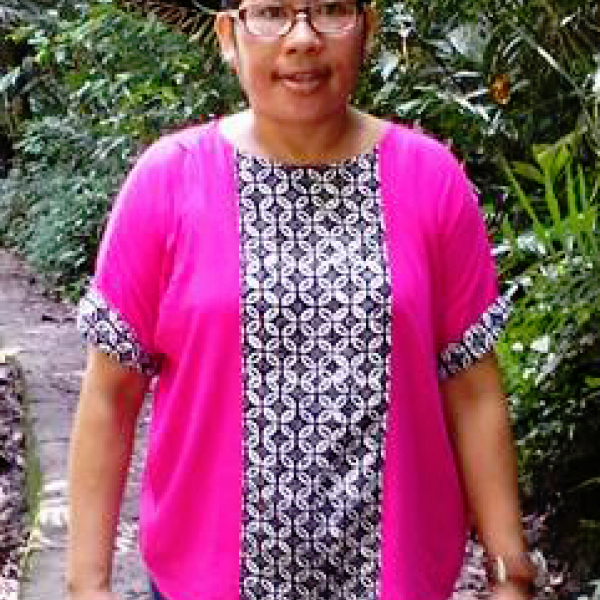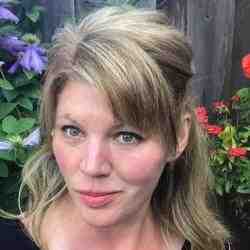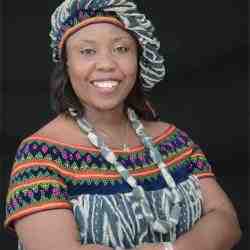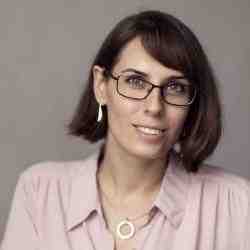Introduction
Lembaga Pemberdayaan Perempuan dan Anak is inspired by the intense religious segregation found in Ambon, which results in built up tension between Christians and Muslims. This is accomplished by infusing pluralism into communities using the latest educational modules on tolerance, which are taught in Baihajar's co-created playgrounds. Baihajar trains women as emissaries who will disseminate her lessons to young children, creating a community-based playground allowing children to lay down the foundations for tolerance between the Christians and Muslims of Ambon.
The New Idea
Baihajar was a refugee in the 1999 Indonesian religious conflict. During this time, she lived with 600 families in a 500 square meter camp, where children were victims to the lack of their right to access education and proper life, while also witnessing and living in traumatic situations. Baihajar established LAPPAN (women and children empowerment foundation) to build community-based education for children and a peace building movement in 2002. Her organization is the first local organization in Maluku which focused on this issue. Baihajar is providing high-quality early childhood development activities to children who live in refugee camps. It focuses on children from three to six years of age – a group that has been overlooked in many other education and community programs. Through education she would teach the new generation about pluralism and religious tolerance. Baihajar smoothly incorporates common lessons in reading and math with modules on self-awareness, celebration of difference, and the history of religious and ethnic diversity in Indonesia. She re-introduced local wisdom “Pela Gandong” that states everyone is a brother or a sister, and that all families must protect and respect each other.
Started with a playground, Baihajar managed to bring community members to start and sustain their own post-conflict recovery and reconstruction effort. It was developed entirely by local organizations, parents, and community volunteers. It is culturally appropriate, it does not depend on funds from donors and it uses it's own resources. She enters communities and sets up self-sustaining playgrounds that act as kindergartens for the communities’ children. She trains the women of the village to become emissaries who co-manage the playgrounds for their communities by teaching Baihajar’s educational modules. By offering microfinance loans for the women who run the diversity lessons on the playground, she creates trust and buy-in with the adults.
Through this model, Baihajar has worked with more than 6000 women and over 10,000 children, since 1999, in five islands in the Maluku, including Ambon, Seram, Buru, Saparua, and Haruku. Baihajar travels from village to village to ensure the consistent operations of her diversity education. The National Commission of Human Rights for Eastern Indonesia, showed her that she has opportunities to replicate this model through-out the Eastern Indonesia.
The Problem
Since 1999, Ambon, the capital city of the Maluku Islands, has been wrecked by sectarian conflict between Muslims and Christians. This conflict is estimated to have caused around 6,000 casualties and 1,500 deaths in the two communities. At the height of the conflict, about 300,000 persons were displaced from their homes. Large numbers of families live in camps and other public facilities originally set up to meet their emergency needs. Some 4,500 people are still living in refugee camps around Ambon, five years after their initial displacement. People lived in 500 square meter camps with 600 families and with poor facilities. The conflicts have destroyed many schools and playgrounds and there was no replacement for education facilities at the camp.
Due to the religious nature of this conflict, the camp is segregated into Muslim and Christian Camps. The refugee camps became “off-limits” for members of the other faith; for fear of their safety, members of each community did not dare venture into areas predominantly composed of the other group. Even post-conflict, formal schools being built, which previously were composed of mixed religions, have become segregated by religion. Many schools now lack teachers because teachers became internally displaced, too. Educational resources such as textbooks and other learning tools for children became scarce.
Through all of these displacements, children have suffered greatly, both physically and psychologically. They are living in traumatic situations due to their families embedding stereotypes against other religions to their children. The children often exhibit extreme symptoms of fear and aggression and tend to have poor concentration and low self-esteem.
The segregation and the tension still exist as the conflict re-emerged in 2005, and in 2011, and people were forced to leave their house for refugee camps once again.
The Strategy
While living in the refugee camp in 1999, Baihajar could see how traumatized children were without spaces for them to play. Beginning her work in the refugee camp, Baihajar spoke with children to learn how they feel, how the trauma has changed their lives and their dreams for their futures. To create this bond, Baihajar played with the children in front of the camp where there was a small space to have open conversations, sing, and conduct ice-breaking games.She understood the extent to the problem and knew that she could convince the adults how important education is for their children. Thus, Baihajar, managed to utilise spare rooms and transform them into classrooms and playgrounds for the children.
At first, she herself taught the kindergarten and executed her mission to encourage play to ease their trauma. She also taught the students to carry on with the studies that they left behind before the school burned. Baihajar realized that she couldn’t do everything herself and that’s why she began to involve the youth, who helped teach the children to read and count. However, learning these new skills were not enough to ease the trauma, erase the stereotyping against other religions, or end the culture of violence and revenge. Thus, she contacted her friends from the Faculty of Psychology, who are employed at the University of Indonesia in Jakarta, to help her develop the peace-building and tolerance curriculum for the kindergarten. Through education, she would teach the new generation about pluralism and religious tolerance.
Realizing that the promotion of pluralism and religious tolerance were sensitive topics in the community, she smoothly incorporated common lessons in reading and math with modules on self-awareness, celebration of difference and the history of religious and ethnic diversity in Indonesia. Each month-long theme is based on the foundation mentioned earlier, known as, "Pela Gandong".Together with the psychologists, she monitors the behavioral changes of the children and their parents. The research from the University on her work has been published four times in national as well as international journals.
To Baihajar, education is the key to building a new generation that ensures the values of pluralism and tolerance. The only way this can happen is if the environment around them adapts. Furthermore, to instill a sustainable program, Baihajar insists that adults in the community volunteer to run and manage the kindergarten. Realizing that women are also victims of this conflict, she began to involve them in educational training and the program. Through this, Baihajar gained the trust of the women by employing economic tools. First, she sold porridge at the harbor near the camp, which encouraged women to re-build their lives by selling things to help their family income. Later on, many women we inspired and became vendors, thus allowing Baihajar let them lead in this initiative. Then, she created a local market that reunited Christian and Muslim women, which granted them to start building interactions among one another. Further on, Baihajar created a coop to help 600 women from various religious backgrounds with microfinance to help their venture. Once she got the trust from these communities, she continued on with her mission.
Baihajar encouraged the refugees to come back to their village and start rebuilding their lives for the sake of their children’s better future. She focuses on the communities where Christians and Muslims have once lived together in harmony. In these types of communities, she encouraged women to be more active in campaigning tolerance and peace. For those women who got the microfinance loans, Baihajar trained them to become kindergarten teachers for the playground through the tolerance and peace modules. The community managed the kindergarten with their own resources, using local and natural materials for the children education. She also empowered the women to become agents of peace by encouraging them to stop their husbands and youth from getting involved in the religious conflict in order to erase the revenge culture.
The latest psychological report on the impact showed that through the playground, parents are also being educated. This is because the peaceful environment that surrounds these playgrounds helps adults overcome their stress related to the conflict, and in turn, prevent future conflicts. Community member have found that working together for the benefit of the children is a healing process. Adults and children who have been displaced from their homes are able to gain control of one aspect of their chaotic lives while increasing their tolerance for others.
In 2011, the conflict re-emerged for the third time and people once again had to stay at the refugee camp. The coop went bankrupt because the women couldn’t afford to pay back the loan. But Baihajar managed to encourage the refugees to come back to their village within a year by allowing the women to take on the key role of managing the rebuilding fund given by the courtesy of the government.
Her community-based rebuilding peace management model has been adopted by the provincial government of Maluku and applied to every location on the islands. Baihajar is also working with the provincial authority of education to give the children access to scholarships for their future education. Her curriculum of peace and tolerance is also being adopted by the ministry of education and applied in the schools in Maluku.
Although the Ambon Islands and Maluku have experienced conflict twice after 1999 that was in 2005 and 2011, Baihajar said that the community continues to return to their village after such outbreaks. This proved that parents and others have learned that the community should respond more quickly and more constructively when any provocation or sign of conflict emerges.
The Person
Baihajar was born to a Muslim family on February 4th, 1974. She has nine siblings and her father was a civil service worker that brought her and the family to live in Papua, which is where she first learnt how it felt to be a minority. However, as a settler from a rich family, Baihajar was placed in the same class with children of the same background, while local Papuans were placed in a different class. This drove her interest in the topic of discrimination, segregation, and intolerance.
Baihajar received her degree from the University of Patimura, where she studied Agriculture technology. In 1997, she was active in organizing farmers so that they can gain direct access to the market. In 1999, she returned to her village in Ambon, and simultaneously the conflict emerged. Her family house burned down, which resulted in her having to live in the refugee camp. She was encouraged by other Muslim counterparts to live the Jihadist way of life. It was a time of perpetual confusion and turmoil. Muslim and Christian mobs fought on the streets, hurling bombs and stones at each other.
Baihajar has seen and done many things in her lifetime. She saw a man captured by a rival mob and brutally beaten to death. She was also involved in making Molotov cocktails without realizing, until later, how much destruction it had the potential to cause. The experiences made her rethink her motivation by taking in parts of the conflict and wondering what all the violence was really about. She questioned why men and women would kill each other in the name of religion. These contemplative thoughts prompted her to change her ways. She turned in the Molotov, and picked up a pen to re-write history, to problem solve a safer way to solve the conflict, and rebuild the livelihood of the Maluku people.
Baihajar is well aware that her work is still far from finished, as the violence has not truly been resolved given the absence of truly integrated peacemaking efforts from locals and central governments. So her dream for the next five years is to carry on focus with children's education while putting hard effort on advocating the government in the peacemaking process. She dreams that Maluku and Indonesia, in general, will become a nation that houses citizens who can respect their neighbors and a government that safeguards the basic rights of its people. Due to all of her hard work, on Nov. 7th, Baihajar was named the recipient of the 2012 Saparinah Sadli Award, a prestigious local award for women promoting human rights issues.




